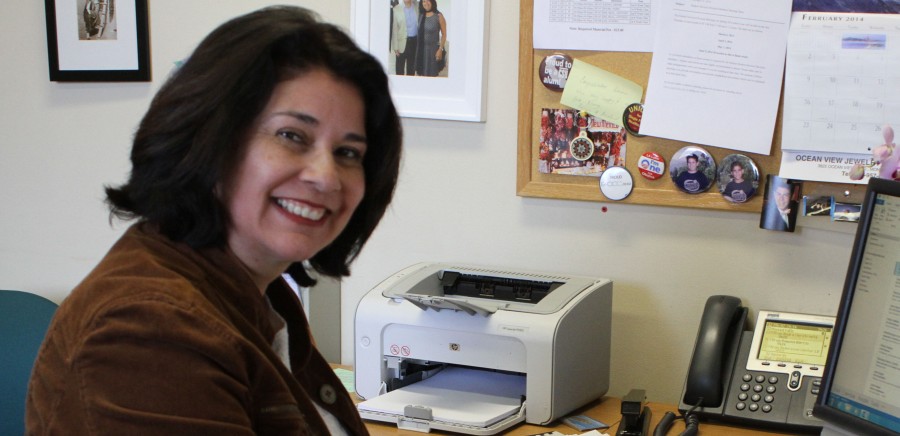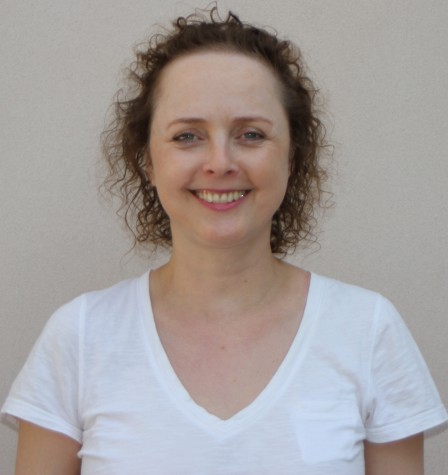A life spent challenging the barriers of racism and sexism did not deter professor Ramona Barrio-Sotillo from achieving her dream of getting a formal education. Barrio-Sotillo exemplifies the theme of Women’s History Month this year, which celebrates women of character, courage and commitment.
As an educator and an activist, Barrio-Sotillo overcame many obstacles, some of which came from her own parents. On her graduation day, she remembers her Argentinean father saying that no matter how accomplished she was, she was not a woman until she was married and had children.
According to Barrio-Sotillo both her father and mother’s culture have changed little in their attitudes towards women. Her mother is from Southern Italy, a place Barrio-Sotillo has visited many times, and still encounters sexism.
“In my culture, in Southern Italy and Latin America, women are not encouraged to become anything but housewives and mothers,” said Barrio-Sotillo. “You are supposed to know your place and your place was not to be a leader.”
Because her parents did not support or understand her goals, it was very challenging for Barrio-Sotillo to pursue her education. However, undeterred by parental opposition, she went on to receive her bachelor’s degree in psychology and her master’s degree in education, educational psychology, counseling from Cal State Northridge. She received her doctorate in education from USC. Barrio-Sotillo is marking her 24th year at GCC and is currently division chair of Student Services.
During the Women’s History Month celebration on campus, Barrio-Sotillo was part of a panel discussion entitled “Choices, Challenges and Compromises,” topics she is well versed in not only from her personal experiences but also as she reflects on the challenges facing women today.
“What scares me the most is how the quality of a person is no longer important, but what you look like on the outside is,” said Barrio-Sotillo.“ I do not understand how any woman can say ‘I am not a feminist or call someone a feminazi.”
According to Barrio-Sotillo, the onslaught of unattainable body images of how women should look has increased dramatically, particularly in the media. She feels that she has to constantly remind her two sons, Luis, 23, and Pablo, 18, that the images they see are not real women.
Andra Hoffman Verstraete, the director of governmental and external relations at GCC, has been friends with Barrio-Sotillo for 14 years and recognizes her work as an activist and a leader.
“She’s committed to fighting for equality and social justice,” Verstraete said. She champions everyone who is unfairly treated.
Barrio-Sotillo says she draws inspiration from strong women, including Eleanor Roosevelt, whose photograph hangs on her office wall. During her early years as an activist Barrio-Sotillo met a hero of hers, Dolores Huerta, co-founder of the United Farm Workers. She says Huerta is an inspiration to her not only because she is highly educated but also because of the way she took a stand in the face of discrimination against both women and Latinas in general.
As an activist, Barrio-Sotillo has taken to the streets many times. In the 1980s, she campaigned against the invasions of Grenada, El Salvador, Nicaragua, Panama, and vividly recalls the Chicano Moratorium protest against the Vietnam War in which Los Angeles Times reporter Ruben Salazar was killed. She protested both invasions of Iraq and says she felt it was important to take her sons with her on protests so they could be exposed to other people that cared.
Along with her work commitments, Barrio-Sotillo has previously acted as the president of the Glendale College Guild, the campus body that represents the faculty and oversees the collective bargaining rights for about 600 people. She has also been the public information officer for the guild and campaigned in the board of trustee elections, She spent two years as the governor at large for the Faculty Association of California Community Colleges, which represents all community college faculties.
Her partner, Douglas Day, an entertainment industry illustrator, said he has never met anyone who gets more satisfaction out of helping people than Barrio-Sotillo does. He recalls the first trip they took together to do political lobbying in Sacramento.
“Everyone knew who she was, and everyone wanted her opinion,” he said. “She was out there talking to congress people – I was so impressed.”
An avid reader of authors like Alex Haley, “Malcolm X” and Toni Morrison, “Beloved” both “must reads” according to Barrio-Sotillo, have helped her become the person she is today.
“I love anything that combines empowerment for those that are oppressed in society which includes women, African Americans, Chicanos, and Latinos.” Barrio-Sotillo said, “That is why I am here at the community college. I am here for the underdog.


